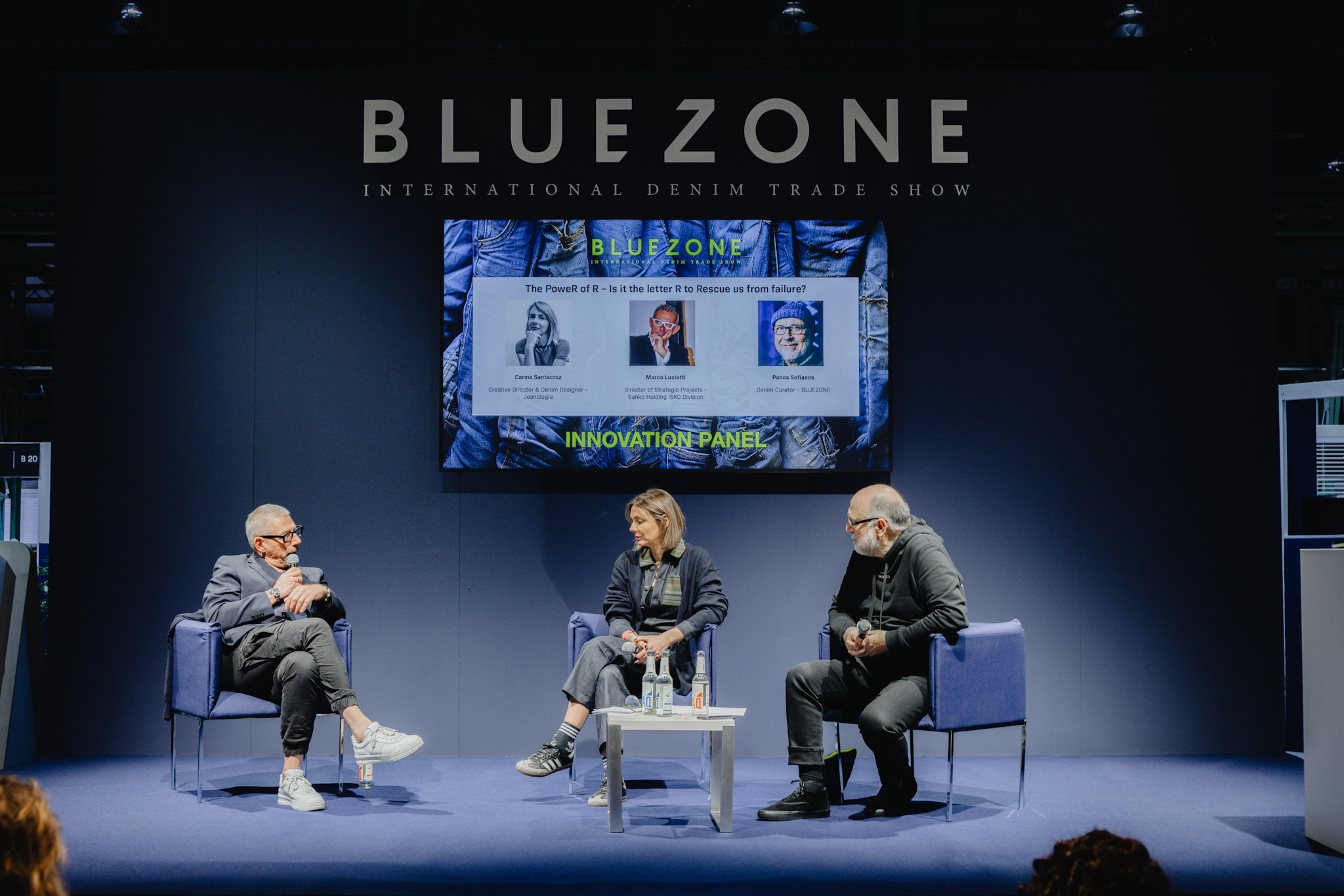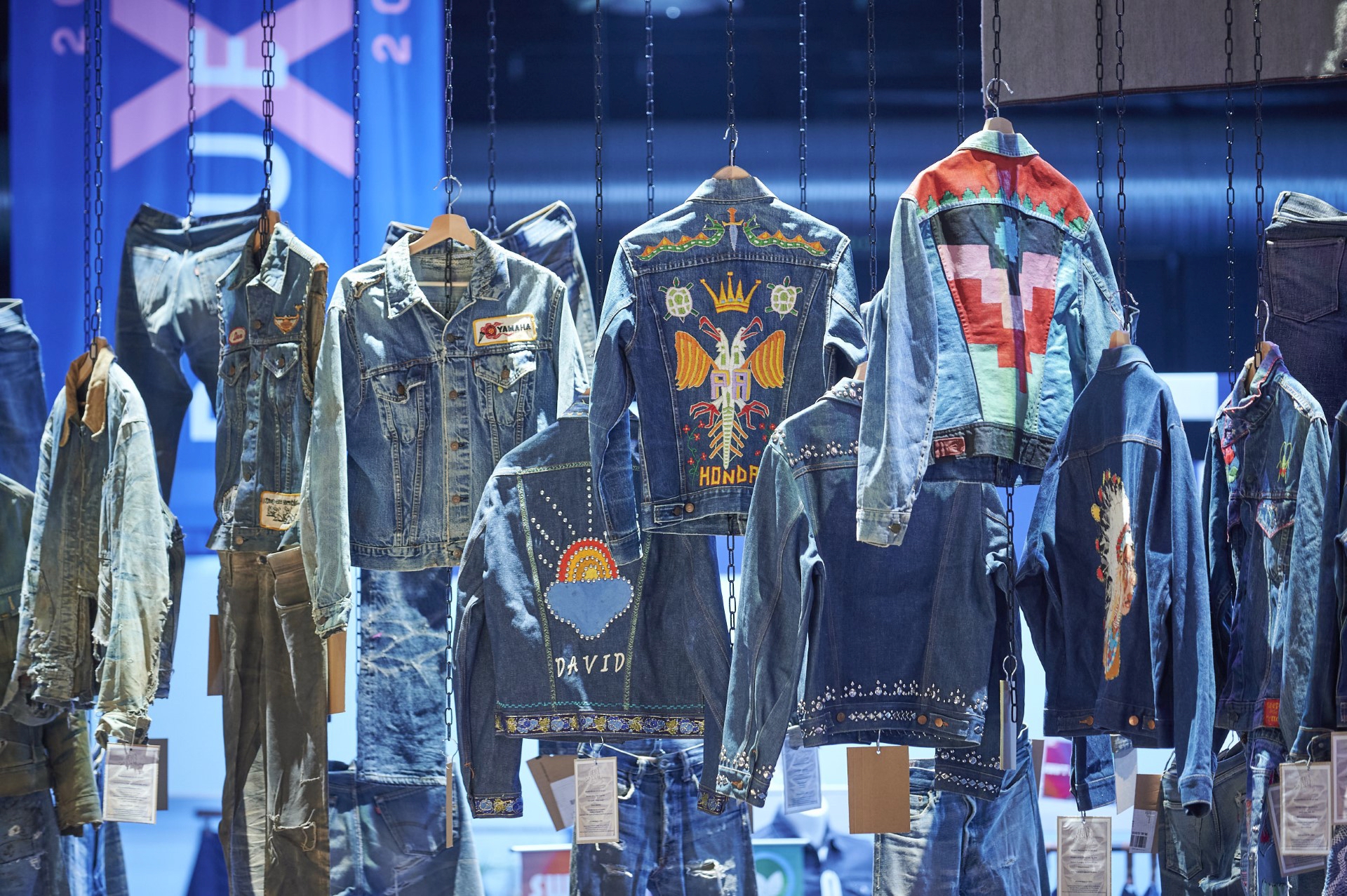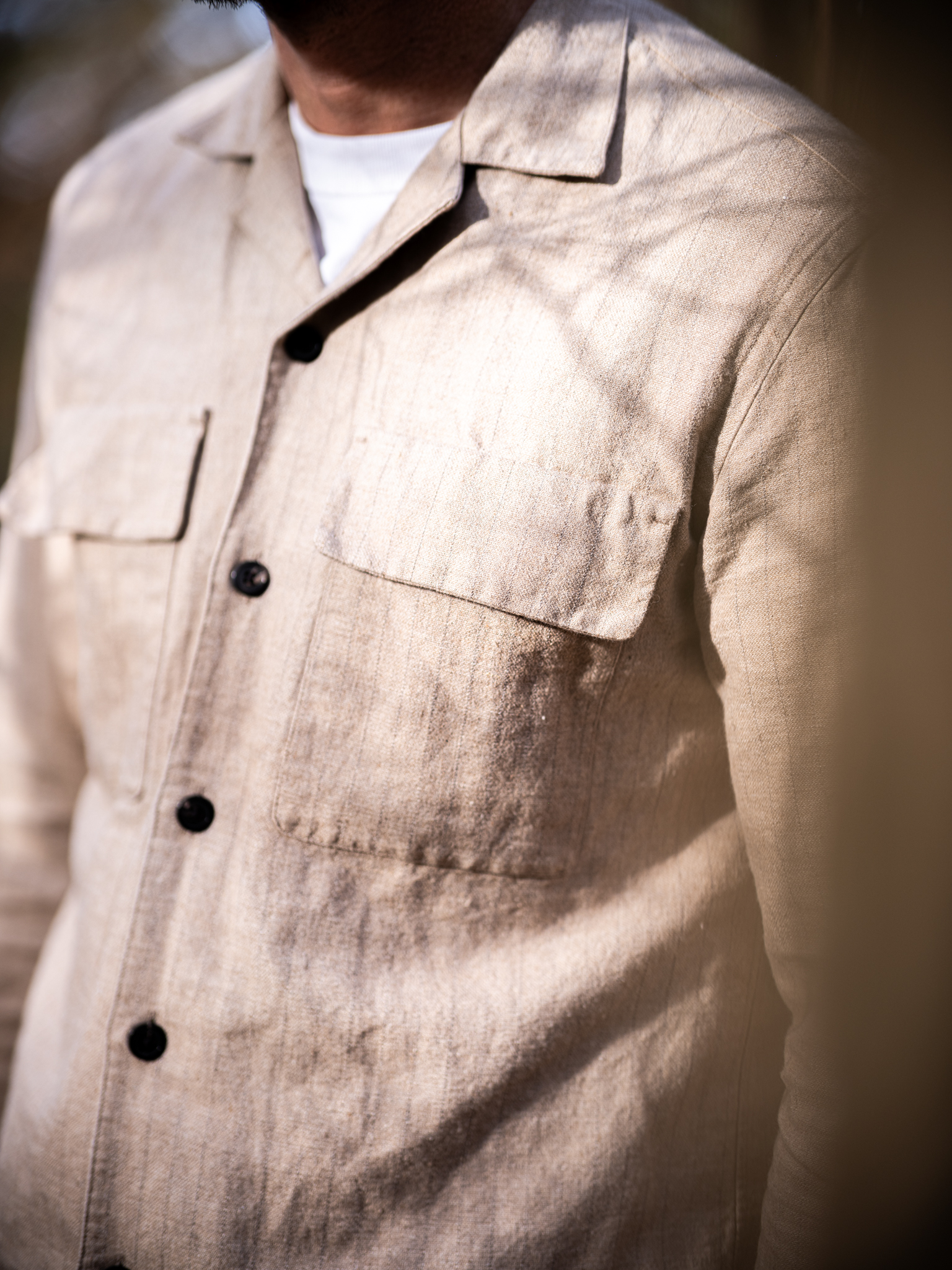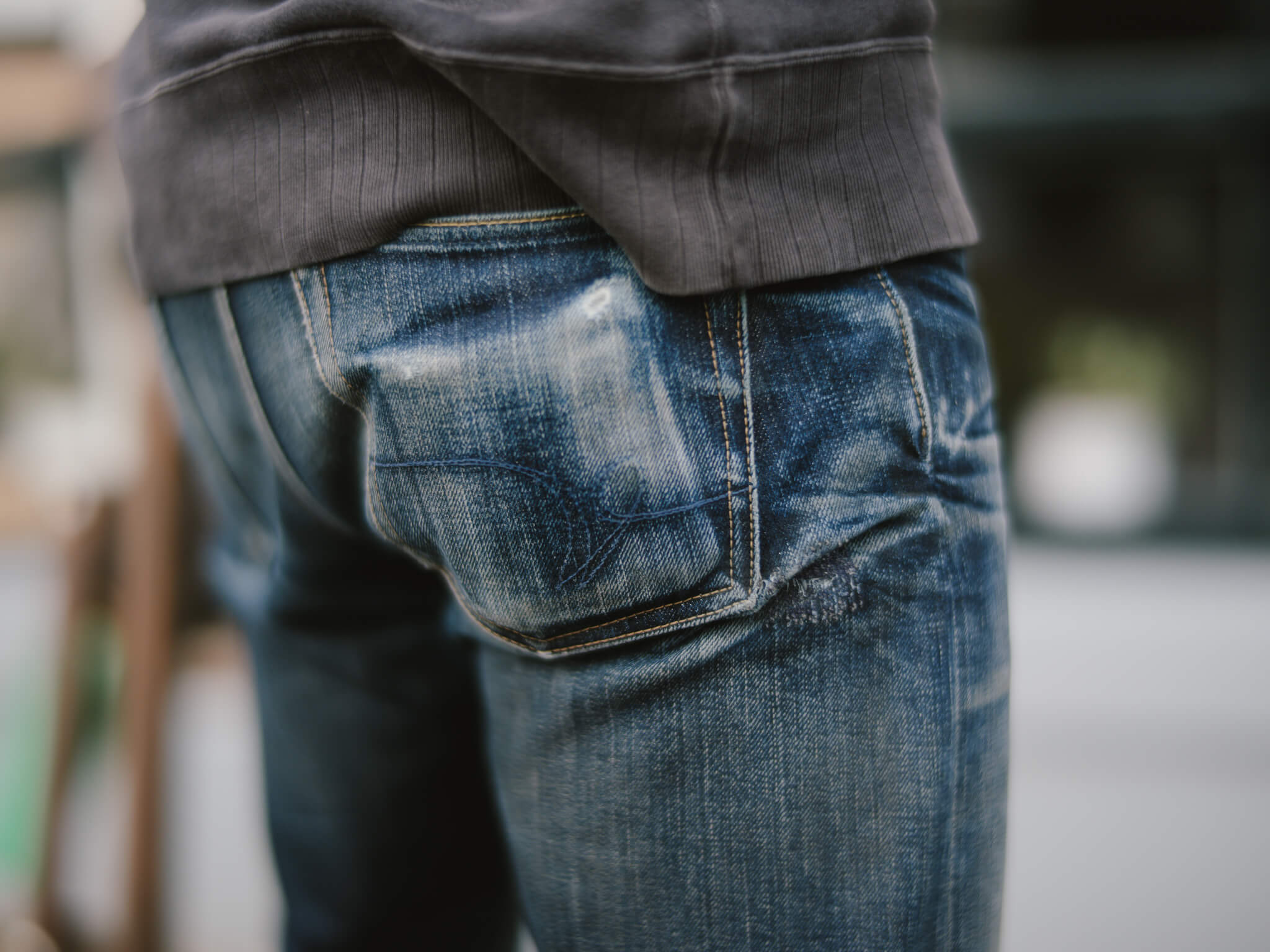Interview with Herman Hardi, founder of Warpweft Company
In December 2018, we travelled to Wall of Fades in Jakarta. We were really surprised by the quality and composition of brands in Indonesia: In the global denim scene, many people are focussed on Japan, the USA and more recently Europe. With good reason, of course. But seeing the love, passion and high-quality garments in Indonesia, some brands definitely deserve our attention and their time in the spotlight.
One of the brands that drew our attention was Warpweft Company. What really caught our eyes was the slubby and irregular fabric used by the brand. When we stopped by their booth and looked closer, we were impressed by the high-quality manufacturing, clean finishing, and attention to detail.
Truly, these jeans are coming close to Japanese standards. And obviously, we wanted to find out more. So we reached out to Herman Hardi, founder and owner, to have an exclusive interview.
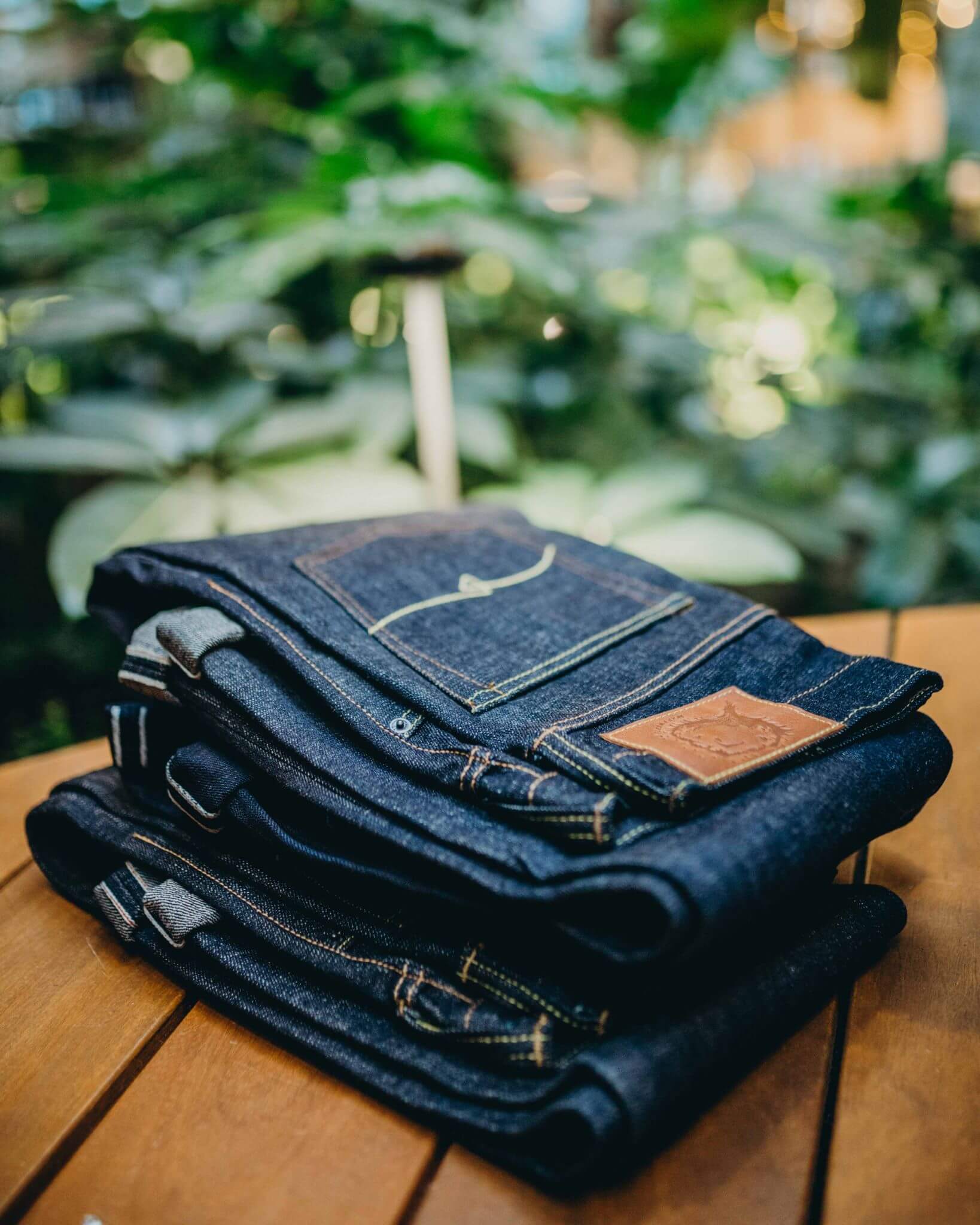 Photo courtesy of Koen Kuik.
Photo courtesy of Koen Kuik.
Robin Denim: Herman, can you start by introducing yourself?
Herman Hardi: My name is Herman Hardi. I am the founder and owner of WARPWEFT COMPANY, also known as WWco. I am 31 years old and I am living in Jakarta, the capital city of Indonesia. I have bachelors degree in business. I had no knowledge or experience in the garment industry, nor making denim. So everything is purely based on my passion and willingness to learn everything from zero.
RD: What drove you to start Warpweft in the first place? What were your original dreams?
HH: When I was in college, my friends introduced me to raw denim. Like many of them, I started with Nudie and then worked my way to Ksubi, Imperial and The Flat Head. After I came back to Indonesia in 2010, it was very hard to find a good pair of quality selvedge denim jeans. I found out that there was a big local denim scene, but I couldn’t find something that could fulfill my expectations. It was either the fabric quality, the denim construction, or the fit. I just couldn’t find a pair of jeans that could completely satisfy me.
So, I decided to start learning everything about denim from that moment onwards. Thank God, there was a fellow Indonesian denim brand owner who taught me a lot about the industry. From sourcing and pattern making, to putting me in touch with factories. I bought a lot of Japanese denim to learn everything about the fit, details and construction etc. I reverse engineered many Japanese jeans, to understand their way of construction. After two years of studying Japanese denim, I started WWco in 2012.
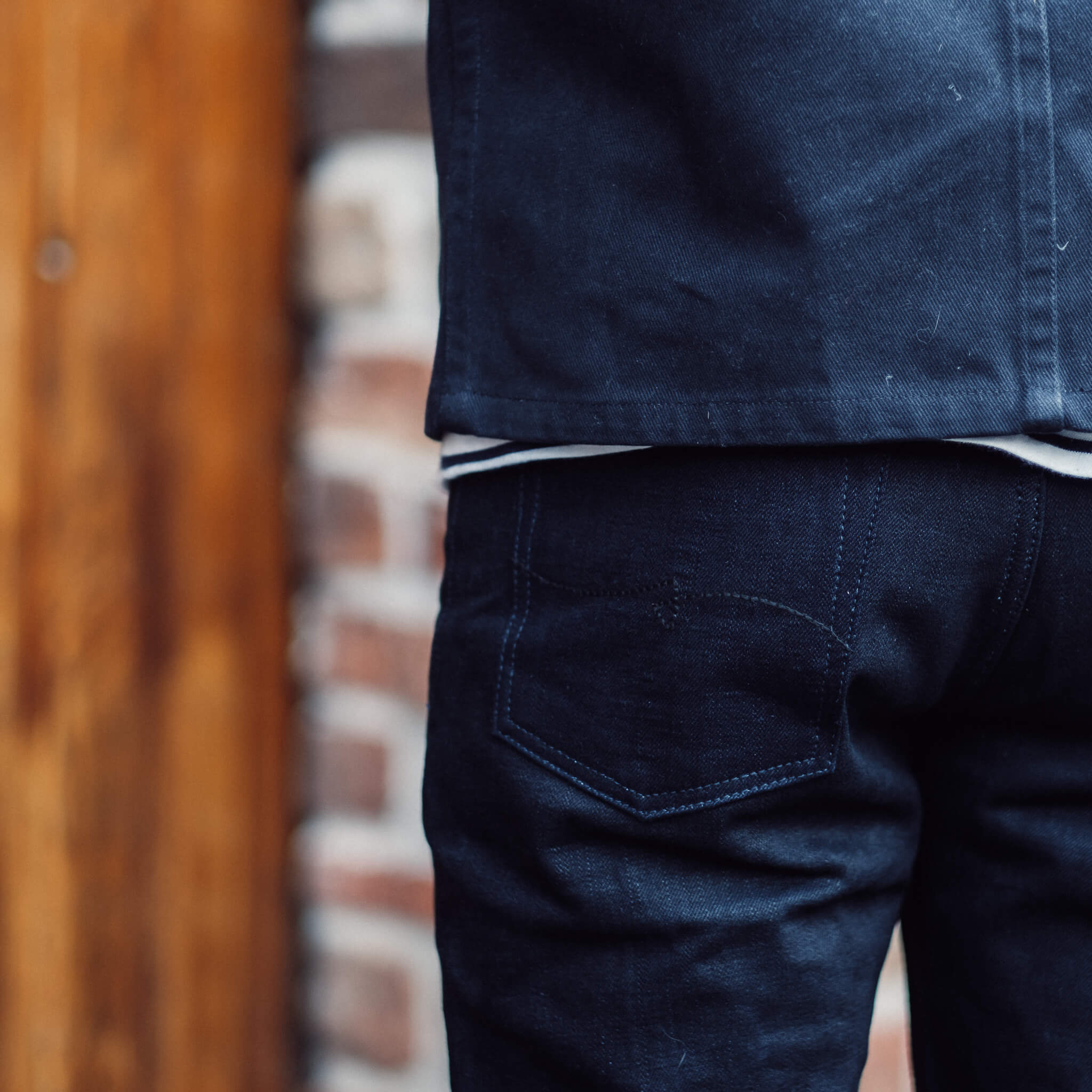 Photo courtesy of Hans Jellema.
Photo courtesy of Hans Jellema.
RD: What are the most important influences for your collections? Where does the inspiration come from?
HH: The most important influences for WWco are a few Japanese brands that I admire, such as Pure Blue Japan, The Strike Gold and Tanuki. These brands are known for products of an unrivaled quality and they manage to retain their identity, character and philosophy. In contrast to most western brands, Japanese brands often neglect their online marketing. But, in the end they prove that making quality and long lasting products is the best type of marketing. With this in mind, I made the quality of my product the number one priority.
It took me around seven years to be able to reach today’s Exquisite Series collection. Also to have the guts to present it to the overseas market. In those seven years of managing WWco, I ignored almost all marketing and branding. I was just focused on product development; to increase the quality of the fabric, construction, fit and details.
I realized that it is impossible for us to compete with the Japanese, with something that they have already perfected. That’s why I infused the Indonesian spirit into each of our products, to make something truly unique. All jeans in the Exquisite Series collection are constructed with a lining on the yoke. The fabrics that we use for the lining, is made by a traditional handwoven Indonesian textile technique that we upgraded and tweaked. The traditional and natural indigo dyed block batik print is part of our Indonesian heritage. I wanted to help preserve this heritage and through using this fabric, I am able to support small family owned artisanal workshops.
This kind of mentality and passion is what drives me every day. To prove to the world that a country like Indonesia, can produce denim of a high standard, even when compared with products made in the US, Europe or Japan.
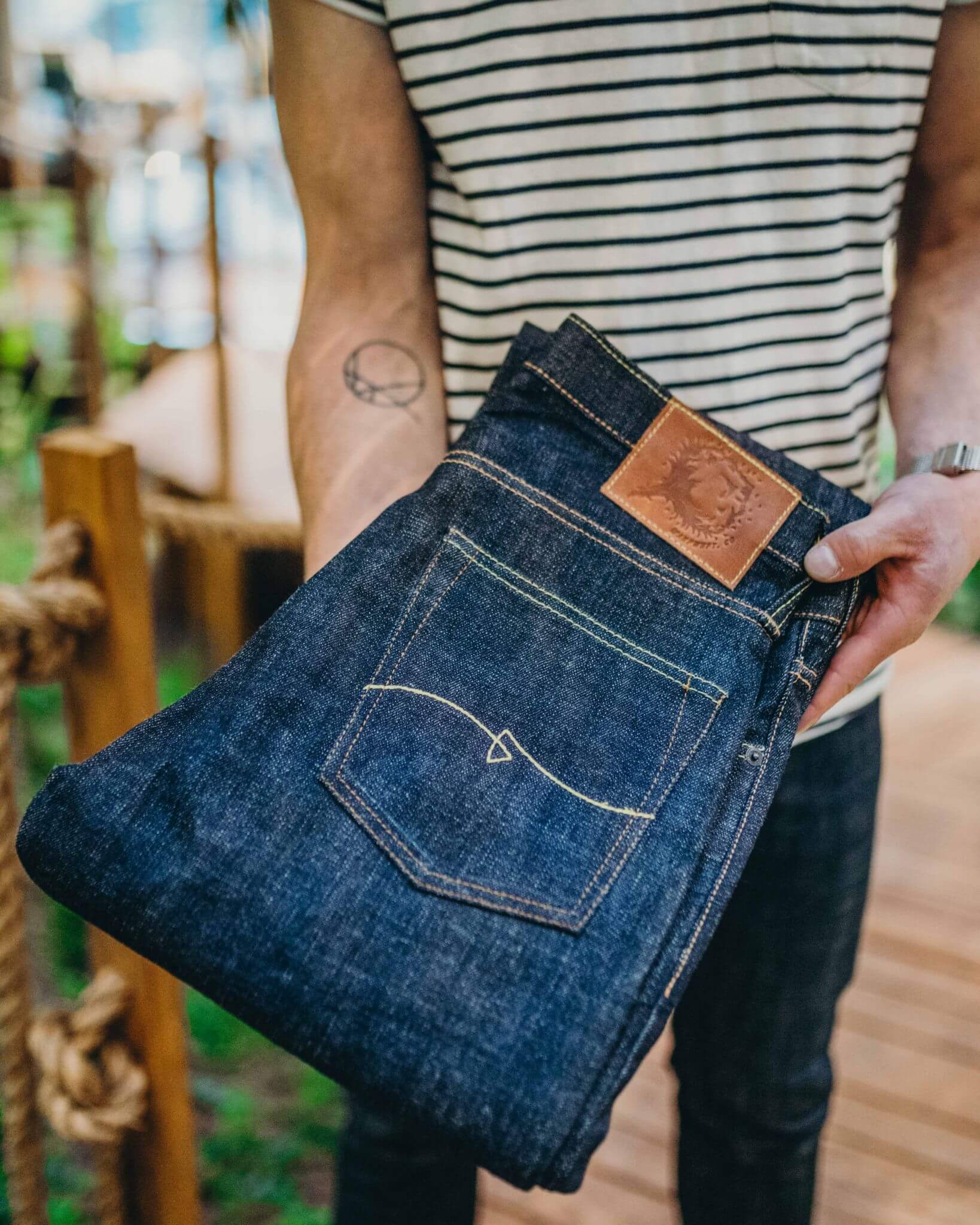 Photo courtesy of Koen Kuik.
Photo courtesy of Koen Kuik.
RD: What are the signatures of Warpweft Company?
HH: Two signatures I would like to highlight are the ‘Cotton Flower Leather Patch’ and the ‘Essential Arcuate’. Those two are the most visible and typical signatures of WWco.
‘Cotton Flower Leather Patch’
The idea of the ‘Cotton Flower Illustration’ on the patch derives from one of WWco’s pillars. We focus most of our energy on the quality of the fabric: the denim. The small WARPWEFT.co words under the cotton flower shows to the customer how we see visual marketing and branding – only as a platform that presents our product(s).
I believe that the name of our brand does not really matter and the country that we come from is not that important. What truly matters is my promise and passion to present the best denim products; that reflect the soul of Japanese craftsmanship with an Indonesian twist.
‘The Essential Arcuate’
We decided to design an arc which represents the following fundamental requirements:
1. The Arc Stitch should be positioned in the center of the pocket.
2. All the stitching should be sewn from one side to another without lifting the needle foot.
3. The Arc should have at least one looped stitch (intersection stitch).
RD: For fabrics, you seem to be focused on Japan only, whereas most Indonesian brands are using locally sourced denim. Why are you solely using Japanese denim?
HH: We all know that Japanese mills produce the best selvedge fabric in the world. To accomplish my mission to make the highest quality jeans, I need to work with the best fabrics available. Every core material that supports our collection should be the best that we can source!
The Japanese are known for their determination and curiosity towards certain things, in this case; denim. They keep exploring anything related to denim fabrics, in order to expand the boundaries. I have the utmost respect for the Japanese attention to detail and I strive to share the same spirit with my team.
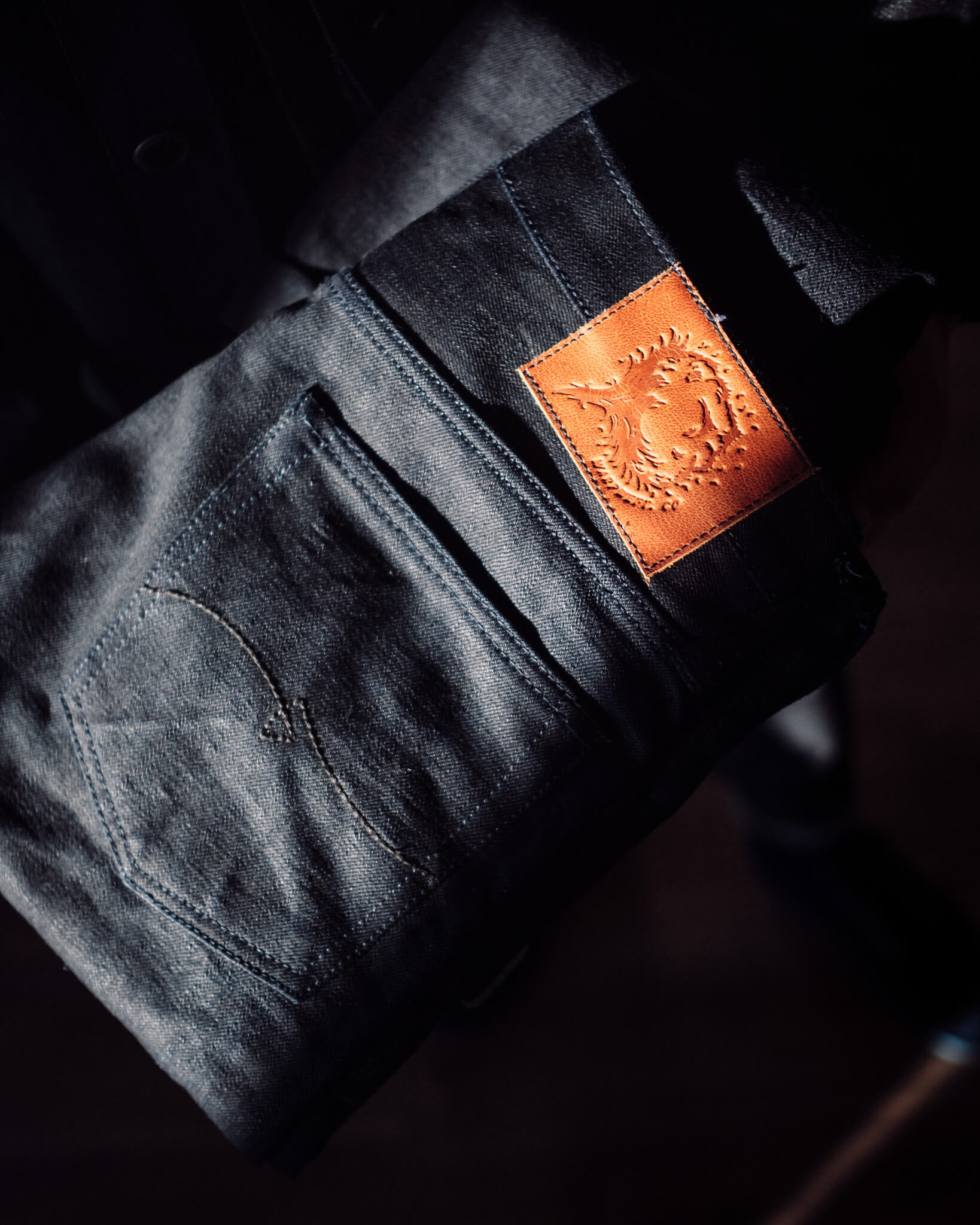 Photo courtesy of Hans Jellema.
Photo courtesy of Hans Jellema.
RD: Your fabrics feature many slubs and irregularities in terms of texture. Why, and how, do you chose these fabrics?
HH: In the past few years, the Indonesian denim scene has mostly revolved around heavyweight denim and high-contrast fades. The market is flooded with a huge variety of super stiff and heavyweight denim. As a result, the Indonesian denim community are accustomed to judge a product solely on how heavy the denim is and how stiff it is.
Personally, I am a big fan of Pure Blue Japan, The Strike Gold and Tanuki. Their fabrics have very distinctive features that other top-tier Japanese brands rarely have. The signature slubs and irregular textures make their fabrics stand out.
So – even if I know it’s a risky idea – based on my passion for Japanese denim culture and heritage, I decided to present to the Indonesian community a fabric that is completely different to what they are used to.
Our jeans are made of less stiff, middleweight, extra low tension weave, denim. The fabric is very irregular with a protruding slub. They will fade beautifully, no matter how active or inactive your lifestyle is!
RD: What are, in your opinion, the most eye-catching fabrics used for your collection?
HH: The EX-101, EX-201 and the lately released EX-102 are my favorites. They are the most slubby, irregular and extra low tension weaved fabrics I have ever used for WWco. They truly give the feel of a Japanese high-quality fabric!
RD: Can you tell us a little bit more about the location of Jakarta and the advantages (or disadvantages) of designing, sourcing and producing in this city?
HH: We are located at the Ancol Area, in the north of Jakarta on Java Island.
The advantages of being located in the capital city of Indonesia is that most people have a good and stable income, as well as being focussed on a modern lifestyle. For this reason, Jakarta is by far the best place to offer high-quality denim in Indonesia. There are also a lot of family owned artisans in and around Jakarta, who offer high-quality manufacturing at a relatively low cost.
The disadvantage is that when it comes to production and quality, Indonesia is not a well known country (especially outside Asia). There is a skepticism about premium brands coming from a relatively unknown country.
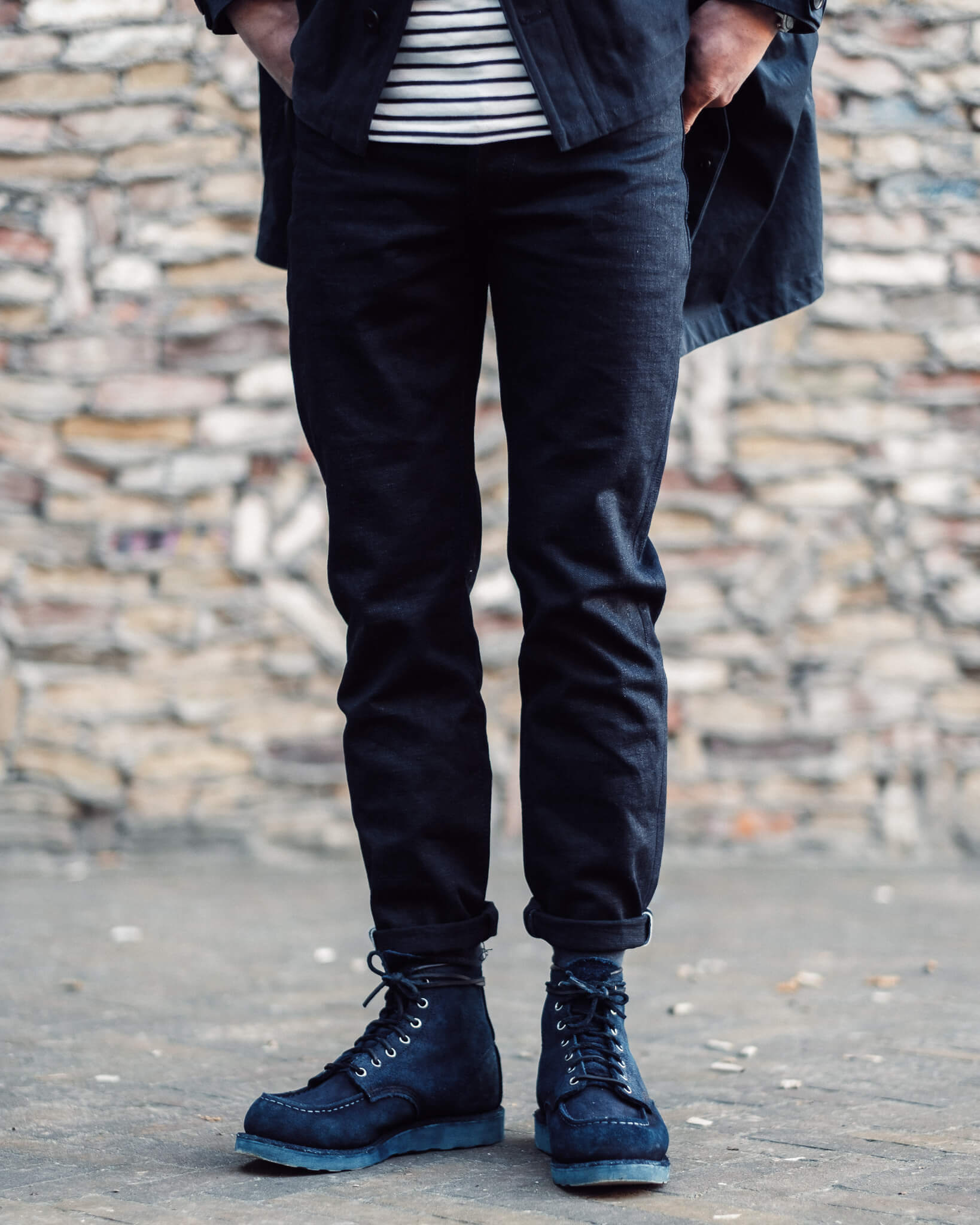 Photo courtesy of Hans Jellema.
Photo courtesy of Hans Jellema.
RD: Where do you produce the collection and why did you choose this specific factory?
HH: Our factory is in Bandung, a city just a few hours hours south from Jakarta.
For me, the most important aspect of the sewing factory is their vision and commitment to always pursuing the highest standards of product. I chose our factory in Bandung because they have the same ‘slowly made to ensure quality’ mentality. This gives me the opportunity to keep improving my collection and ensuring quality. They are never taking shortcuts or cutting corners; they just make jeans exactly as I want.
I am so glad we found a factory sharing the same passion as ours. If in the future their philosophy changes, I would set up my own home-based sewing factory to produce my collections, in order to guarantee the quality.
RD: Indonesia has many local many denim brands at the moment – how do you differentiate Warpweft from other brands?
HH: Many Indonesian denim brands are focussed more on brand image and marketing, instead of the quality. In my opinion, no matter how good you polish the narrative, at the end of the day it is only the product that matters.
Our main focus is to ‘dive deep’ into all the basic details that form our products. My main challenge is to keep pursuing higher standards and being committed to the craft. WWco also differentiates itself from other Indonesian brands by offering a very special fabric. Like I said before, we focus on slubby and low tension Japanese selvedge denim, instead of heavyweight fabrics.
At the last edition of the Wall of Fades event, I asked many customers about their experience of WWco. Most of them replied that they saw WWco as a brand offering the highest quality of denim, with minimum visual details, and no superfluous gimmicks. Well, that is exactly what WWco is trying to be!
 Share
Share
 Tweet
Tweet
